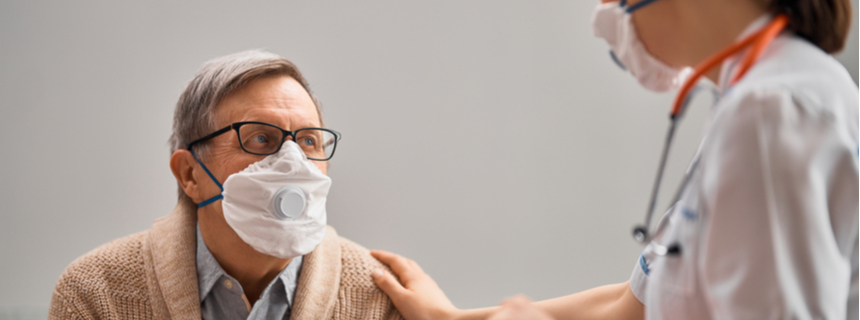Free Consultation
(314) 500-HURT100+ years of combined experience and over $200 million won for our clients in Missouri and Illinois. Contact a personal injury lawyer near you.
Free Consultation
(314) 500-HURT
Strictly following state and federal COVID-19 prevention regulations is the legal obligation of long-term care facilities to keep residents safe in the midst of infectious outbreaks. Prevention measures for COVID-19 are the same strategies used to detect and prevent common viruses such as the flu. This includes hand washing, avoiding social contact, and not touching shared surfaces.
With elderly people being most at risk of contracting the virus, additional prevention measures must be enforced in nursing homes. Note that while nursing homes are a hotspot for infection, everyday contact for people both healthy and immunocompromised is dangerous.
If you or someone you know has questions about a nursing home Corona, claim please contact me. You can also visit our website here. Below are some of the coronavirus prevention regulations to which long-term care facilities are required to adhere:
Elderly people are considered high-risk for many illnesses and conditions. With nursing home residents regularly getting sick, undergoing surgeries, receiving physical therapy, and getting treatments, it’s crucial for nursing homes to sanitize frequently.
According to the CDC, one of the most effective ways to prevent the spread of COVID-19 is to continually disinfect tables, chairs, and other surfaces. If a long-term care facility fails to take proper sanitary precautions, and a resident gets sick, this could result in a nursing home claim for loss of life.
Coronavirus spreads easiest via respiratory droplets and touch. As such, the CDC recommends that all people (especially nursing home caregivers, nurses, and doctors) wear face masks and gloves to prevent its spread. If a long-term care facility fails to provide gloves, face masks, face shields, and other supplies to nurses, doctors,
and other caregivers, and a resident contracts COVID-19.
Isolation is one of the most effective ways of preventing a nursing home resident from infecting others. Isolation must be achieved as soon as an individual is suspected of having coronavirus – this is done through persistent surveillance by nursing home caregivers, nurses, and doctors.
If a patient is showing coronavirus-related symptoms such as dry coughing, running a fever, or having shortness of breath, staff should spot these signs immediately and follow COVID-19 prevention measures and isolate sick residents. Failure to isolate a nursing home resident that has been diagnosed with coronavirus, or is displaying symptoms, is nursing home negligence.
Federal COVID-19 nursing home regulations were updated on 4/13/2020. Per the update, nursing homes and long-term care facilities must prohibit all non-essential visitors and outside caregivers and physicians, such as hospice and EMS workers, dialysis specialists, etc.
Any staff or visitors that have a cough, fever, or other coronavirus symptoms are restricted from entering facilities. Lastly, group gatherings such as dining hall meals, religious services, and social activities, are strictly prohibited. These events are shown to be conducive to the spread of the virus. Nursing home residents must be isolated from all possible sources of infection whether they display symptoms or not.
Federal nursing home regulations mandate that long-term care facilities must utilize an Infection Control Program, which is designed to help each resident attain or maintain their highest level of well-being. Under these regulations, facilities must:
When investigating a potential coronavirus lawsuit against a nursing home or long-term care facility, we obtain a copy of the facility’s infection control record. This record should include potential coronavirus cases, as well as the steps that the facility took to prevent the spread of COVID-19.
Founder | Injury Attorney
Gary Burger has dedicated his career to standing up against bullies. The founder and principal attorney of Burger Law | St. Louis Personal Injury Lawyer has helped hundreds of Missouri and Illinois individuals and families recover th …
Years of experience: 30 years
Location: St. Louis, MO

Similar Blog Posts

Tap water is something most of us take for granted—until it starts affecting our health. Whether you're filling a glass at the kitchen sink or making dinner for your family, you ... read more.

The main causes of injuries when using forklifts in St. Louis generally stem from overturns, vehicle collisions, and pedestrian impacts involving forklift equipment. Operator mista... read more.

Yes, you can get an infection from dog bite—and it can become serious if not treated quickly. These infections aren’t just a minor inconvenience. They can lead to hospitalizati... read more.

This page has been written, edited, and reviewed by a team of legal writers following our comprehensive editorial guidelines. This page was approved by Founding Partner, Gary Burger who has more than 30 years of legal experience as a practicing personal injury trial attorney. Gary’s robust legal knowledge is recognized by his peers as demonstrated by his industry awards and frequent Continuing Legal Education (CLE) lectures.
NO FEES UNTIL WE WIN YOUR CASE
We offer free consultations and are available 24/7 to take your call. Live chat, text, and virtual meetings are available.
or call us at